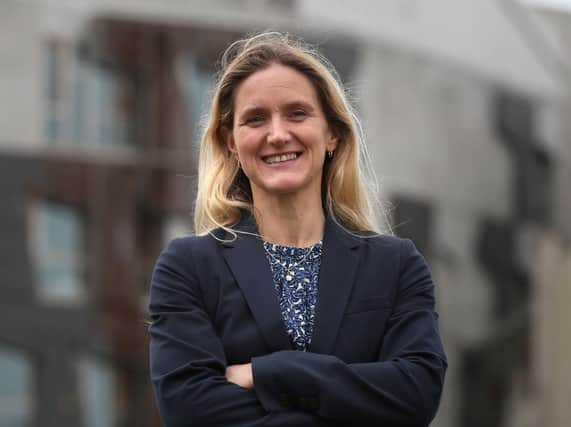Communities urged to keep 'little acts of kindness and compassion' going as region begins to recover from pandemic


Researchers from the British Future think tank will soon be out speaking to people in Yorkshire face-to-face to find out how communities can go on in the new spirit of togetherness that came as neighbours developed new bonds in the early weeks and months of the crisis.
It has found that lockdown unity is fading, with three fifths of people said society tends to dwell too much on our differences, while a similar number said we have lost the ability to talk about politics without getting angry and abusive.
Advertisement
Hide AdAdvertisement
Hide AdEven though 80 per cent of people said it was important to meet people from different backgrounds, only a quarter said they often were able to do so.
But director of strategy for British Future, Jill Rutter, said that doesn’t have to be the case.
“We don’t have to sit back and watch that happen, though. We can work to keep hold of the few positives to have come out of this crisis – our realisation that we are at our best when we stick together.”
Its new project, talk/together, has already launched a public consultation on what unites and divides us, and will be speaking to people in person “when public health guidance allows it”.
Advertisement
Hide AdAdvertisement
Hide AdKim Leadbeater, the sister of murdered MP Jo Cox, has also urged people to keep “little acts of kindness and compassion” going as the region starts to recover from the pandemic.
Ms Leadbeater, who chairs the West Yorkshire volunteer group More In Common, and is the ambassador of the Jo Cox Foundation, called for people to continue to look out for each other.
“People are good in a crisis and, when we go through really tough times - I can speak from personal experience from when Jo was murdered - people show the best of humanity,” she said.
“We’re all in a similar position dealing with a similar problem. Now our individual experiences of it are going to be very different but, fundamentally, we are all under the same cloud and finding a way through this really challenging time.
Advertisement
Hide AdAdvertisement
Hide Ad“The issues around mental health, the issues around loneliness and social isolation, these are going to be issues in the coming months and years, and we need to still pull together to make sure we minimise the impact of these really worrying things.”
Iona Lawrence, founder of the Connection Coalition agreed, adding that people have not stopped being lonely as the pandemic has eased.
“Covid has really put pressure on people’s relationships and if you were likely to be lonely before, whether you’re old or young, you’re likely to have been lonelier during this time.”
She said though it was hard to track, there were “promising signs” that many people were still doing the types of volunteering that typically go under the radar, like helping a neighbour with their shopping.
Advertisement
Hide AdAdvertisement
Hide Ad“I think what covid has done is given lots of people the excuse that they’ve been waiting for to reach out to their neighbours.”
She urged everyone to consider making the first step as it is not too late to get to know neighbours or to help out in communities.
“I think it does feel quite nerve-wracking but actually, lots of it is very simple.”
The British Red Cross said 41 per cent of adults had reported feeling lonelier since lockdown, and now was the time to ensure no one was forgotten.
Olivia Field, the British Red Cross lead on loneliness, said there needed to be a continuation of social prescribing aimed at tackling loneliness and sustained government funding.
She adde4d: